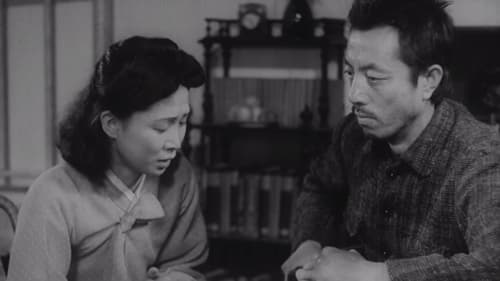Kye-shik Kang
Nascimento : 1917-04-21, Asan, Chungcheongnam-do, South Korea
Morte : 2000-01-13

Once upon a time, under the reign of the three kingdoms, there was a woman who tempts a Buddhist priest named Cho. She is a one-thousand-year-old fox who intends to reincarnate as a human being. Not knowing this, Cho lives with the fox. But in the end, they get separated harboring sadness of unfulfilled love in this world.

This is a horror movie in which a ghost, bearing a grudge, sleeps with a man in order to attain Buddha-hood.

Young adult
Jinsa Maeng's daughter is contracted to marry a nobleman's son, however, Jinsa Maeng is upset when he hears about a rumor that the fiance of his daughter is lame. Finally, he decides to take on the idea of arranging his maid to take his daughter's place in the wedding.

This film is about of the life of the young patriotic martyr Yu Gwan-sun, who fought for the liberation of her country during the Independence Movement in 1919. As the Independence Movement becomes more and more intense among Korean students, the Japanese authorities order schools closed temporarily. Yu Gwan-sun (Do Geum-bong) persuades her neighbors to join the national movement, and continues her aggressive struggle against Japanese rule. An independent campaign at Aunae, a market site, is successful with the passionate participation of many people. She is arrested by the Japanese police for leading the campaign and has to endure horrible tortures. But she never gives up her fight, encouraging her cell mates to participate in the movement. She is finally taken to an underground room by the Japanese police and murdered.

Changho Ahn
At the end of the Joseon Dynasty, shortly after the Eulsa Treaty has been forced to be concluded by Ito Hirobumi and the pro-Japanese courtiers, Japan pressures King Gojong to step down from the throne. Meanwhile, An Jung-geun, who is cultivating men of ability at Samheung school, is deeply impressed by a speech made by An Chang-ho, and heads for Russia to volunteer the army fighting for independence of the country. As both a lieutenant general of the Korean militia and a commander of the Korean expeditionary force in Manchuria, he carries on the independence movement in defiance of Japanese coercion.

Gwang-pil (Lee Ryong), Dal-su (Choi Bong) and Sang-mun (Choi Myeong-su) are gangster boys who pick pockets. Ae-ran (Do Geum-bong), who works at a bakery, and Gwang-pil have known each other from childhood and are lovers. The three gangster boys rob a US army warehouse, but only Gwang-pil is caught and placed in a juvenile reformatory. Hearing that Ae-ran works as a barmaid, Gwang-pil escapes from the reformatory to see her. While Gwang-pil meets her, he is caught by a cop who has been chasing him.

Bu-seok
On the eighth of April of King Gyoeng-deok's 10th year of the reign of the Unified Silla Period, Guseulagi, a daughter of Yu Jong, joins the king's parade to Bulguksa Temple, where she meets a stonemason named Asadal from Buyeo. Having a crush on him, she visits Sakyamuni Pagoda, a masonic site; only to find that Asadal had broken down from exhaustion. While she takes care of him, her love for him grows. But Asadal misses his wife who is waiting for him in Buyeo. Meanwhile, Geum Seong who has a crush on Guseulagi, asks his father, Geum Ji, to propose on behalf of him. But Yu Jong is so dissatisfied with Geum Ji because he is a treacherous subject, that he turns down the proposal, instead of hurrying up his daughter's marriage with Gyeongsin, a faithful subject. Asanyeo who has been waiting for her husband Asadal in Buyeo goes to Bulguksa Temple after her father-in-law had died.

A historical melodrama about a love triangle within a group of bandits.

Adada's poor husband suddenly strikes it rich. He changes his hovel for a beautiful home, but his character changes as well. He becomes overly proud and shows off his wealth. Adada, despising the money and what it has done to her husband, throws their savings into the river

Daewon-gun
In the latter years of the Korean Empire, Lee In Hwa, disguises herself as a man so she can join a group of young men determined to overthrow the colonial government. They fight together with young national activists presided by Hwal Min and supported by Daewon-gun, the Prince Regent, against Min Gyeom Ho and his peers. But Min and his team perform a surprise attack on Hwal Min and his peers.

Hurrah! For Freedom (aka Viva Freedom) is a 1946 Korean film directed by Choi In-kyu. It was the first film made in the country after achieving independence from Japan. During the country's occupation Choi was only allowed to make Japan-friendly films, but the plot of Hurrah! For Freedom is distinctly different, telling the story of a Korean resistance fighter in 1945.









